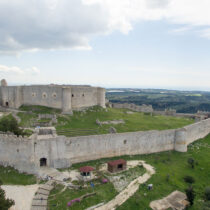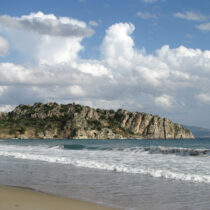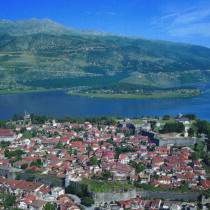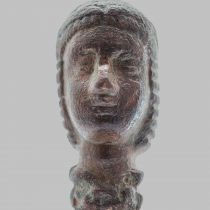Spiritual Direction as a Medical Art in Early Christian Monasticism
The study shows how several early Christian writers applied the logic, knowledge, and practices of Galenic medicine to develop their own practices of spiritual direction.
Mystery_29 Eleusis. Raw Museum
The city of Elefsina introduces itself to the public with the exhibition Mystery 29_ Eleusis. Raw Museum, at the Benaki Museum /Pireos 138.
Virtual tour of the House of the Rhyta on Pseira island
The virtual tour was created by K. Chalikias and P.P. Betancourt whose aim is to make parts of the archaeological site accessible to the public through an immersive virtual experience.
Rijksmuseum receives largest-ever gift of Japanese prints
Elise Wessels has gifted, through the Für Elise Foundation, a substantial part of her collection to the Rijksmuseum, comprising more than 1,100 Japanese prints.
Has the sanctuary of Poseidon been located at Kleidi, Samikos?
Building remains that can be attributed to the sanctuary of Poseidon were located during this year's first excavation season of the new research programme.
Human skull found at site of Bronze Age treasure discovery
A human skull and animal remains have been found in the place where one of the greatest treasures from the late Bronze Age in Wielkopolska was discovered several decades ago.
Zominthos, a palace on the mountain
Dr. Efi Sapouna-Sakellaraki shares some of her memories on the occasion of the publication of her book "Zominthos. A palace on the mountain".
ARCE is now accepting fellowship applications
Now is your chance to apply for any of the diverse opportunities such as the Digital Humanities Fellowship, the Theodore N. Romanoff Prize, the ARCE-CAORC Research Fellowship, and so much more.
A Corpus of Greek Graffiti from Dalmatia
This volume is a corpus of seven hundred Greek graffiti on ceramic artefacts from sixteen sites in Dalmatia.
Institute of Classical Studies Public Engagement Grants
A reminder that the Institute of Classical Studies’ Public Engagement Grants scheme is currently open for applications.
Face to face with our medieval ancestors
Astonishing 3D images and animations of people who died 700 years ago have been created.
Call for Rosetta Stone’s repatriation to Egypt
Prominent Egyptian archaeologists have renewed their request for the return of the Rosetta Stone from the British Museum to Egypt, 200 years after its decipherment "unlocked" the secrets of hieroglyphic writing.
The Rosetta Stone has a prominent place in British Museum exhibition
On the occasion of the opening of the exhibition "Hieroglyphs: Unlocking Ancient Egypt", the Rosetta Stone was moved for the first time from the museum's Egyptian Sculpture Gallery.
The Rise and Fall of Amarna
Online Course with Dr. Stephanie Boonstra, for the Egypt Exploration Society.
The “African Marquis” at the bottom of the Aegean
An extremely rare "Canadian liberty", lying since 1958 in the waters off the islet of Plati, in the southwest Dodecanese.
Shrine discovered with rituals never seen before in an Egyptian temple
Researchers published new findings from the excavations of the Berenike site, a Greco-Roman seaport in the Egyptian Eastern desert.
Archaeologists find ancient ‘fridge’ in Roman camp
Polish archaeologists have discovered an ‘ancient fridge’ during excavation work at a Roman legion camp in Bulgaria.
The diverse genetic origins of a Classical period Greek army
An international team of researchers has analyzed human DNA from Greek colonies in Sicily. The results of the study, headed by David Reich of Harvard Medical School, were published in PNAS.
Dinosaur-killing asteroid triggered global tsunami
The miles-wide asteroid that struck Earth 66 million years ago wiped out nearly all the dinosaurs and roughly three-quarters of the planet’s plant and animal species.
Ancient footprints on UK beach record demise of a biodiversity hotspot
Hundreds of ancient animal and human footprints found on a beach in Merseyside record a major decline in large animal diversity in Ancient Britain.
New data reveals severe impact of European contact with Pacific islands
Pacific island nations suffered severe depopulation from introduced diseases as a consequence of contact with European vessels.
44 Byzantine gold coins discovered in the Hermon River National Park
A treasure of 44 pure gold coins was recently discovered in archaeological excavations carried out by the Israel Antiquities Authority at the site of Paneas (later known as Banias).
Royal Hall of the East Anglian Kings found in Suffolk
Evidence of a 1,400 year-old royal Hall of the first Kings of East Anglia has been discovered in Rendlesham, Suffolk.
Was the St Achilles Basilica built by Tsar Samuel?
This version is supported by research archaeology’s latest data presented at a recent conference.



























